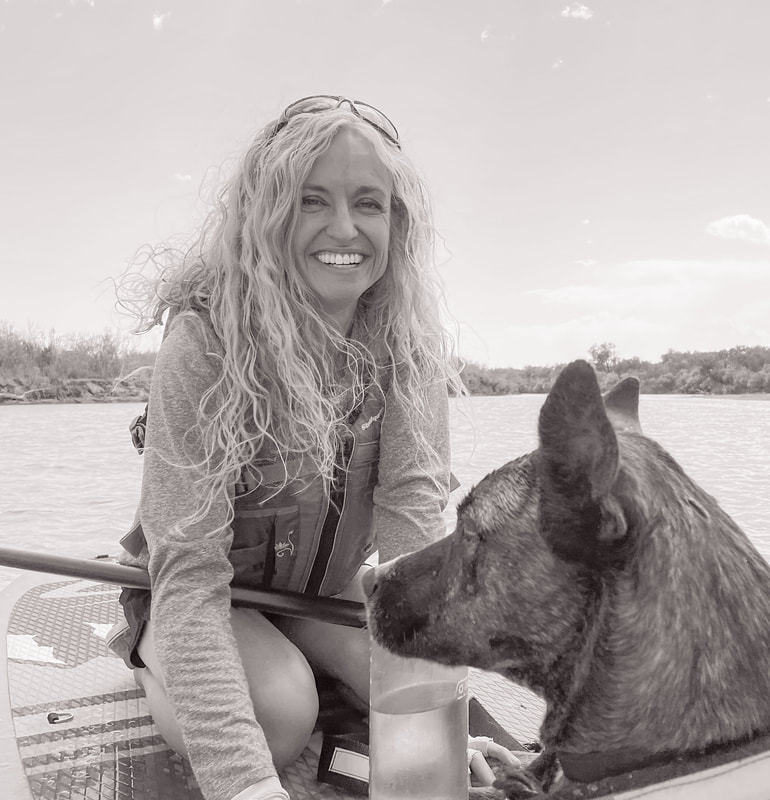Dr. Jennifer Rudgers
|
My work aims to decipher the complex, beneficial interactions among species that structure ecological communities and ecosystems and influence evolution. My goals are to improve predictions for the future and suggest new solutions for adaptation to our changing world. I pursue questions with both conceptual and applied significance with the goals of advancing theory as well as conservation practices and sustainable management.
LONG-TERM RESEARCH ON THE ECOLOGICAL AND EVOLUTIONARY IMPACTS OF CLIMATE VARIABILITY
I direct the NSF-funded Sevilleta Long-Term Ecological Research program in central New Mexico, which advances understanding of the ecological consequences of temporal environmental variability across diverse levels of biological organization. The SEV LTER is focused on interannual variability in climate and how changes in climate mean interact with increases in climate variance and uncertainty. We are running the first field experiments in the world to impose both drier and more variable precipitation regimes simultaneously. The fluctuating nature of drylands makes them excellent study systems to advance general understanding of the consequences of temporal environmental variability across diverse levels of biological organization. sevlter.unm.edu
HOW MICROBES BUFFER AGAINST STRESS
Many species benefit from microbial symbionts. These microbes can enhance host resistance and resilience to environmental stressors. My work elucidates how these symbionts protect species and ecosystems against climate change and other environmental stressors. I tested how climate warming affects the symbionts of plants in the Colorado Rockies, where plants are highly sensitive to temperature and already are migrating to higher elevations as climate warms. We are testing how climate-induced disruptions of plant-fungal symbioses affect plant fitness, as well as biogeochemical processes, such as carbon and nitrogen storage, to project the consequences for ecosystems. A multi-institution collaboration that I spearheaded investigated a widespread, but poorly known, group of plant symbionts – the ‘dark septate’ fungal endophytes – Ascomycota that commonly colonize plant roots. These fungi commonly occur in stressful environments, such as high altitudes and deserts, but we know little about what they do. We are exploring how the benefits of these root endophytes vary along gradients of drought and heat stress, differ among host species (host specificity), and shift across regions of the host plants’ range (geographic specificity). A new project explores the interactive roles of surface microbes (biological soil crusts) and root-associated microbes (rhizobiomes) in promoting ecosystem recovery from prolonged drought. I hope that results will inform climate mitigation strategies for the plants that constitute the foundation of our rangelands and are central to future food security. In addition, deeper insight into the biology of Ascomycota endophytes may revolutionize understanding of how plants tolerate drought and heat, in the same way that studies on mycorrhizal fungi changed what we know about how plants acquire nutrients.
A PARADIGM SHIFT IN OUR UNDERSTANDING OF MUTUALISM
My work has helped to overturn long-held paradigms about the primacy of antagonistic species interactions in shaping the biological world. The field of ecology has long emphasized the importance of negative interactions between species, particularly competition and predation, in determining the structure of communities, while essentially ignoring positive interactions (mutualism) for many decades. This antagonistic paradigm likely has several origins, but almost certainly reflects the fact that the most abundant and important mutualisms are microbial and therefore invisible to the naked eye. As the methods to identify and characterize microbes have advanced, we have gained new insights into the far-reaching effects of mutualistic symbioses, with outcomes that extend to human medicine, conservation, bioremediation, and agriculture.
Resilience solutions for drylands
I currently serve as Interim Co-Director of the University of New Mexico’s ARID Institute (Accelerating Resilience Innovations in Drylands). arid.unm.edu. Our mission at ARID is to pioneer resilience innovations that enable New Mexico residents, businesses and organisms to thrive despite the impacts of climate change on water, community health, ecosystems, energy and infrastructure.






